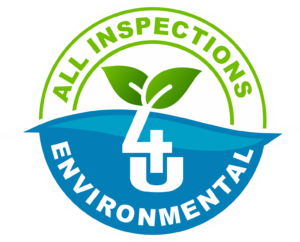Appliances Inspections

AVAILABLE SERVICE IN MIAMI, BROWARD & PALM BEACH COUNTIES
Kitchen Appliance Inspections
The Standard
SoP Clause 10.1.F states: The inspector shall inspect installed ovens, ranges, surface cooking appliances, microwave ovens, dishwashing machines, and food waste grinders by using normal operating controls to activate the primary function.
The first thing to note is that the SoP identifies specific appliances. The SoP excludes appliances such as refrigerators, trash compactors, clothes washers, and clothes dryers. You may inspect other appliances if you wish, but it’s not required. The SoP also excludes appliances that are not installed. This includes counter top microwave ovens and other counter top cooking appliances. The second thing is that the SoP describes the inspection method. You inspect by operating the appliance’s primary function to determine if it functions properly. What does that mean? We’ll address this for each appliance.
An interesting question, for Standards geeks, is how does SoP Clause 2.2.B.1 apply to inspecting appliances? What? You don’t remember this clause? Inspectors should have it tattooed on a readily accessible part of their anatomy. This essential clause tells us we are looking for defects that involve not functioning properly, significantly deficient, unsafe, or near the end of their service lives.
Identifying appliances that are not functioning properly is the goal of inspecting appliances. Significantly deficient does not apply to appliance inspections because the SoP directs us to inspect appliances by operating them. The SoP does not direct us to inspect for significant deficiencies in the appliance itself. We may find significant deficiencies in and around the appliance while inspecting it, and if we happen to find any, we should report them. We should inspect for clearly visible unsafe conditions in appliances regardless of whether we operate them. Identifying aging appliances is a good client service, and a task you may wish to perform, but it’s not required.
Remembering SoP Clause 2.2.B.4 is also important, although framing it on a wall in your office is probably sufficient. This clause instructs us to report if we do not inspect a required system or component and to report the reason why. There are good reasons why you might not operate a kitchen appliance. If you don’t, you should report the fact and report why not. By the way, reporting that you did not inspect the appliances is required even if you disclaim appliance inspections in your inspection agreement.
We’re going to divide the tasks for inspecting each appliance into two categories. Tasks you should perform are those that we believe are important to determining if the appliance is functioning properly. Tasks you may wish to perform are those that we believe may be a good idea, but are beyond the intend scope of the SoP.
There is one other caveat. Use your state SoP and any interpretations thereof if your state requires you to inspect appliances. Some states may require more than what we believe is adequate.
Dishwashing Machines
Inspecting the dishwashing machine (dishwasher) involves determining if it fills with water, operates and drains. Running the dishwasher on any cycle that requires it to perform these functions satisfies the inspection requirement.
Range, Wall Oven, Cooktop
A range is an oven and cooktop in one cabinet. A wall oven is one or more ovens installed in a cabinet. A cooktop consists of burners mounted in a kitchen counter top. Inspecting an oven involves activating one element, usually the lower (baking) element. Inspecting a cooktop involves operating all burners and any warming area at the highest temperature. Tasks involved in inspecting these appliances are similar, so we’ll discuss them together.
Microwave Ovens and Exhaust Fans
Microwave ovens that we should inspect include those above the range/cooktop and those built into a cabinet. Some high-end microwaves include a convection oven. We should inspect the convection oven like a wall oven if it has a convection bake function that can be used without the microwave.
Food Waste Disposer
The term garburator will be the first entry in the Canada/US translation dictionary; garburator’s one term for this appliance north of the border. Don’t call it a Disposall (unless it is the GE brand). Disposall is a brand name and like all brand names, use of a brand name is poor reporting practice unless the appliance is that brand. Inspecting the disposer involves turning it on and listening for unusual sounds.
Washer and Dryer
Normal operation of units, with water supply and venting system.
Refrigerator
Inspecting the refrigerator involves determining if it dispenses water & ice, temperatures and operates normally.
Other appliances in the property from the point of view of normal operation. None are invasive or intrusive.
To schedule an inspection, call (954) 802-8524
Call (954) 802-8524
SCHEDULE AN INSPECTION TODAY


